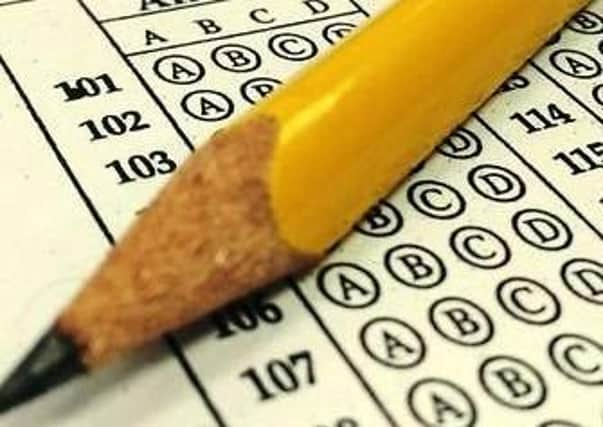Parents begin legal battle over transfer test delay


A judge granted leave to seek a judicial review into claims the postponements of at least two weeks due to coronavirus will further discriminate against disadvantaged families.
Mr Justice McAlinden pledged to oversee a full hearing over the summer period due to the urgency and significance of the case.
Advertisement
Hide AdAdvertisement
Hide AdProceedings have been issued against the Association for Quality Education (AQE), and the Post-Primary Transfer Consortium (PPTC).
Each autumn the two organisations provide tests used by most grammar schools in Northern Ireland to select their intake.
But this year’s exams were deferred because of the wider Covid-19 crisis.
Lawyers representing two pupils due to sit the tests contend that the decision to delay by a matter of weeks amid so much disruption to their education is unlawful.
Advertisement
Hide AdAdvertisement
Hide AdThey allege a failure to properly consult, as well as arguing that moving to new dates in November and December is unfair and in breach of human rights.
Both children have been granted anonymity in the joint case.
The court heard one of them is currently being educated in Irish, with neither of her parents fluent enough in the language to help her study.
The other child faces separate issues in preparing for the transfer test due to a diagnosis of autism.
Advertisement
Hide AdAdvertisement
Hide AdDonal Sayers QC, for both families, said: “These children are disadvantaged in particular ways by the delay being proposed.”
However, he further submitted that the decision to put the tests back by two or three weeks will represent a further impediment to more pupils.
“There’s a baseline of damage that will inevitably be caused to all by the school closures,” Mr Sayers told the court.
“But it will widen the attainment gap between disadvantaged children and their peers.”
Advertisement
Hide AdAdvertisement
Hide AdThe challenge is being resisted on a number of grounds, including claims that the testing bodies are private companies exempt from judicial review.
Counsel for AQE added that it would have “moved in tandem” if others had agreed to shift deadlines for the testing process.
Despite this, Mr Justice McAlinden cited the public interest issues involved in the case.
“It’s quite clear the schools to which these applicants are applying are schools which are substantially, if not entirely, funded by the state,” he said.
He confirmed leave was being granted to seek a judicial review against the AQE, PPTC, and a third respondent, the Education Authority.